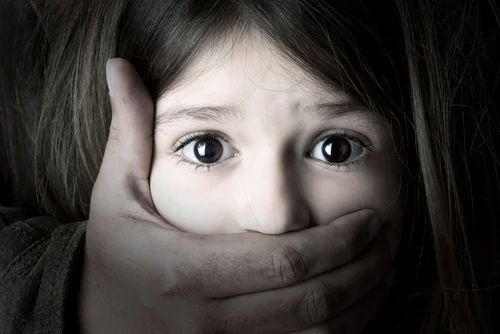+1 845 259 2974 (11 a.m to 7 p.m CST)
Shield Your Teen from Online Monsters and Demons

In 2007, MySpace.com issued a list of over 29,000 registered sex offenders who had their profiles on the most popular social networking website in the United States of America. With such a heavy presence of sexual predators on the internet, your teen is exposed to the risk of falling prey to one. Another alarming statistic for online child sex abuse was given by Crime Against Children Research Centre, which showed that one in seven children in the U.S is threatened by online sexual predators.
As law enforcing authorities tightened the noose around child sex offenders in the physical world, pedophiles took to the cyber world to lure and trap children for their perverted pleasures. In legal terms, this is called “online grooming”. The anonymity of the cyber world cloaks sex offenders, helping them to gain children’s trust and develop intimacy online. Keeping their old tactics of sweet talk and charm intact; sex offenders have adopted new online tools, such as social networking sites, chat rooms, instant messaging, to find their potential victim and communicate with them discreetly. Sexual predators take advantage of these tools to develop online relationships with teenagers.
Laying The Trap: Understanding Online Predators
Being a parent, it’s your responsibility to explain your child about the monsters of the online world. Tell them how sexual predators behave online.
- Online predators spend lot of time on internet, exploring different social networking sites, chat rooms, and websites and discussion boards to find kids.
- They try to gain trust of kids by spending lot of time with them, chatting affectionately and sending gifts.
- They will take keen interest in finding out children’s favorite music, hobbies and other interests.
- They manipulate teens by listening to their problems about home and school, particularly their tussles with parents.
- As children start to trust the predator, they lower their inhibitions providing him an opportunity to trap the potential victim by introducing sexual content in their online communication.
- If a bond is struck between the predator and his victim, he would take his chances to meet the child face-to-face.
The Guardian Angel – Parental Check
Keeping checks on online activities of your kids is no less than a Herculean task. While using the internet your child is exposed to different cultures, ideas and people from around the world. Of course, it is not humanly possible to filter every person online. However, by following the guidelines given by Federal Bureau of Investigation, you can minimize the risk of your child becoming a victim of online sex predators.
- Be aware of your surroundings; as most sex offenders already know the victim. Contact your local police department to know registered sex offenders in your area.
- Always keep a smooth line of communication with your kids. Inform them about features of potential sexual predators online.
- Install parental control software or computer monitoring software to keep a check on your kid’s online activities and browsing history.
- Ensure your that child’s age is not less than the recommended age limit of social networking sites. If your child is less than 13 years of age, do not let them use any social networking site – at least not without your supervision.
- Chat rooms for early teens should be monitored, as they are flooded with dubious users. Direct them to chat rooms which are well-monitored and regulated.
- Ensure the safety of your children by keeping regular checks of the chat rooms they visit. Also keep a check on users they chat with and content of the conversations.
- Even if the chat rooms are monitored, make sure your child chats in the public area. Private chat rooms would not allow you to monitor their conversations; thus, increasing chances of meeting an online predator.
- Do not keep the computer in your children’s rooms. The computer should be placed in a common room where the screen is easily visible to you. This will allow you to watch over every conversation your child makes online.
- Keep in contact with your children’s school and library officials to know how they monitor their students’ computer activities. Similarly, you should also know if your kids’ friends also have parental controls installed in their computers.
- Keep a check on downloads that your child does. Make sure they haven’t downloaded sexually explicit files and if they did, try to find the source. Similarly, check what material has been uploaded from your computer.
After working out every possible way to monitor your children’s online activities and exhausting every measure to protect them from online sexual predators, if your child still comes across an offender, never blame your children. It is the sexual offender who bears the full responsibility of manipulating a child.
If your Child is a Target
In such a crucial time, you need to take some important steps.
- Immediately contact your local police. Give them every detail of any email, chat or sexually explicit material containing you came across.
- Search your computer – every file, folder, drive – for any pornographic material or communication with sexual content.
- Increase cyber and physical monitoring of your child, as there is likelihood that the sexual offender would want to meet face-to-face.
Teenage is the time when children look for friendships and understanding away from their family, since they feel like they are misunderstood by their parents. In their naivety, teens overlook the risks they take by disclosing personal information and pictures to strangers online. This is where parental guidance and protection steps in. Don’t rely on discussions or warnings related to dubious online communication and activities. Take a step further and monitor your kids’ internet activities and browsing trends. Your teens may feel like you're invading their privacy, but during their early teen years you need to be particularly aware of their online interactions.























